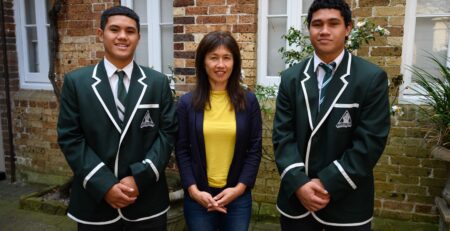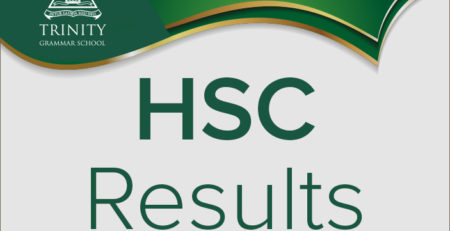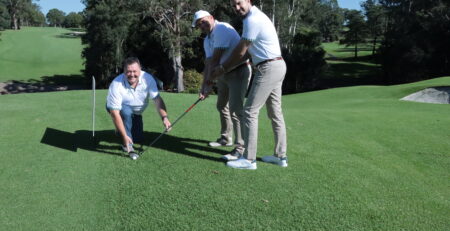Chaplaincy | Relationships and technology
“When you were born, you spent hours staring at the faces of those who cared for you, hungry for connection. These days, that desire to connect drives you to spend more time than you’d like staring into your phone – even if this is a very different kind of recognition than the one we first sought.”
So says American author Andy Crouch in the opening pages of his latest book, The Life We’re Looking For: Reclaiming Relationship in a Technological Age.
Crouch is a partner for theology and culture at Praxis. His writing has been featured in The New York Times, The Wall Street Journal, and Time Magazine, exploring faith, culture, and the image of God in the domains of technology, power, leadership and the arts. (To find out more about Andy Crouch’s work, visit his website here.)
The Centre for Public Christianity (CPX) recently brought Crouch to Australia for a number of events including the annual Richard Johnson Lecture, held this year at the Art Gallery of NSW.
His whirlwind visit also brought him to a special breakfast at Shore School, during which he met with teachers and chaplains, gave a brief address on how to help teenagers flourish in our technological age, and fielded questions from the floor.
Some key insights I gained from the breakfast:
- Technology is an “unformative force” in that it dwindles us rather than developing us. This is because technology is meant to make life easier (eg. robot vacuums), but the more time we spend in easy environments, the less resistance we encounter, and as a consequence, the less personal development or ‘becoming’ we’ll see.
- School, home, and church (if you have one!) are intentionally formative environments. That is, they are places where formation not only happens, but is expected to happen, and happens largely by design.
- The pervasiveness of technology in our schools and homes has seen us let an unformative force into a formative environment, the consequences of which are both obvious (eg. laziness, boredom, etc.) and complex (eg. if it diverts us from suffering, does it diminish our capacity for perseverance and ultimately hope?).
- “Making good choices about technology is more than just using internet filters and limiting screen time. It’s about developing wisdom, character, and courage in the way we use digital media, rather than accepting technology’s promises of ease, instant gratification, and the world’s knowledge at our fingertips.”
Hearing Crouch speak was enough to inspire me to commit to reading his two latest books, the aforementioned The Life We’re Looking For: Reclaiming Relationship in a Technological Age, and the best-selling The Tech-Wise Family which, in partnership with the Barna Group, has also been made into an online course to help parents, teenagers, and organisations reclaim real life in a world of devices.
For those keen to join me in reading, The Arthur Holt Library has copies of Crouch’s books for borrowing. Alternatively, you can purchase your own copy at any of the major book retailers.
Blessings,
Nathan Lee | Assistant Chaplain
















